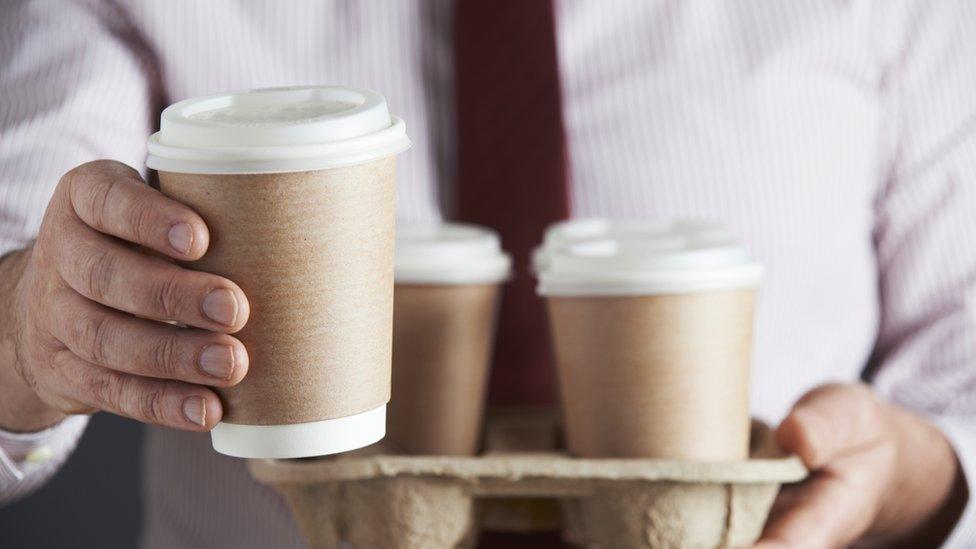Welsh hospital disposable cup use astonishment
- Published
- comments
Health boards said they were working on reducing the number or to make cups more easily recyclable.
More than 36 million disposable cups were bought by Welsh health boards in the last five years, new figures show.
One health board made up more than half of that figure - buying 18.5 million cups since April 2013 which equates to more than 10,000 cups every day.
Keep Wales Tidy said the figures were "astonishing" and the use of the cups should be cut.
Health boards said they were working on reducing disposable cup use or to make cups more easily recyclable.
Abertawe Bro Morgannwg University Health Board (ABMU), which includes hospitals in Swansea, Bridgend and Port Talbot, bought the most disposable cups of any Welsh health board since April 2013 - 18.5 million.
Aneurin Bevan University Health Board - which has bought about 8.7 million disposable cups in the last five years - is now taking steps to ensure all its catering packaging can be recycled.
Its procurement business manager, Mark Lewis, said: "The opportunity will allow the health board to decrease our impact on the environment by switching to compostable catering containers and packaging."
He said the move would mean all waste could go in the same bin - for use in fertilizer and the energy market - and could mean it is close to plastic-free within six months.
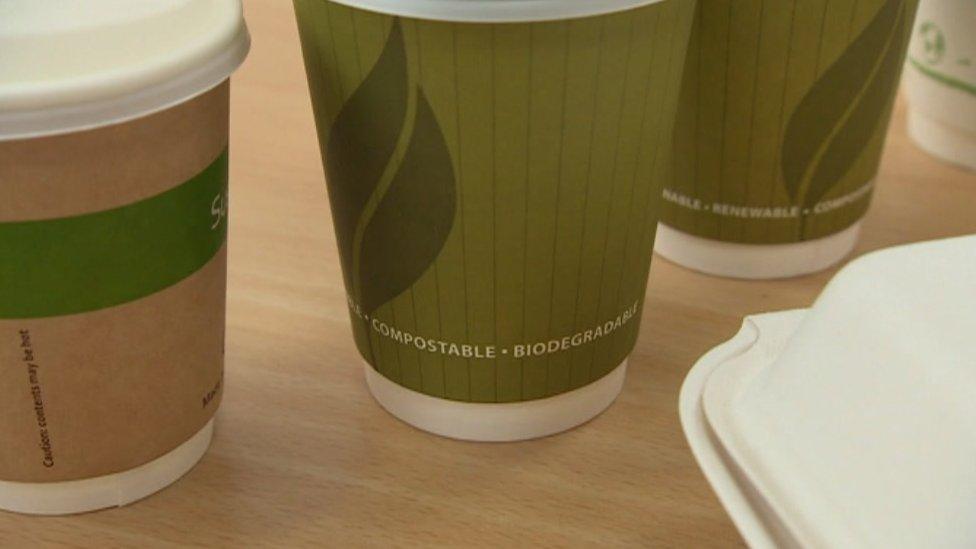
Aneurin Bevan hopes to moves to cups which can be re-used in fertilizer and in the energy market
More than 99.75% of disposable used cups in the UK do not get recycled because there are currently only a small number of specialist plants in the UK able to process them.
The latest figures - obtained by the BBC via a freedom of information request - include data from all of the health boards.
Cardiff and Vale health board said it had bought more than five million cups in the last five years.
The figures for the cups - which are made of plastic and cardboard - do not include cups bought by third parties, such as high street coffee chains.
Others reported also using plastic, polystyrene, foam, paper and biodegradable cups for hot and cold drinks.
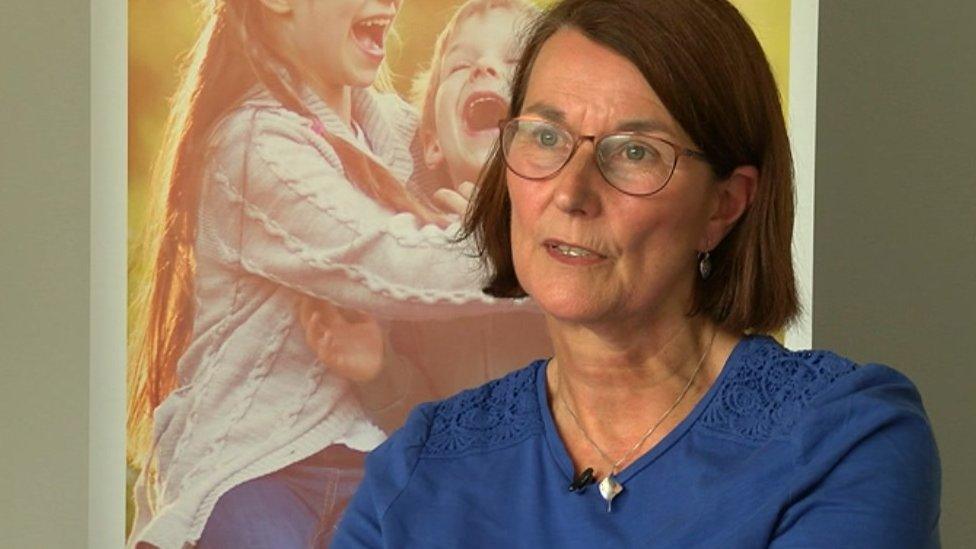
Lesley Jones of Charity Keep Wales Tidy said single-use plastic items which do not need to be used should be the first issue to address
Lesley Jones, chief executive of Keep Wales Tidy, said the number of cups bought "cannot do anything but astonish us".
"It does make you realise that we have to really think about how we are going to solve this problem and, working together, tackle it together," she said.
Environmental groups have called for more re-usable cups, refillable bottles and refill stations within companies and public sector organizations, where possible.
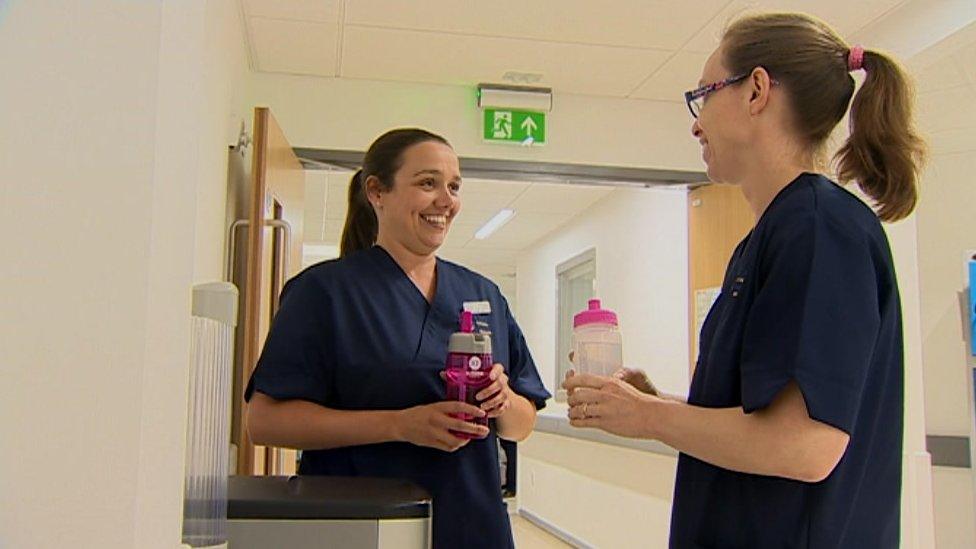
Nurses at the neonatal ward at Glan Clwyd Hospital have removed plastic cups from their ward
Neonatal staff at Glan Clwyd Hospital, Bodelwyddan, were so inspired by Blue Planet II highlighting the issue, they have stopped using disposable plastic cups and cut down using cotton wool buds, which have a plastic stem, in favour of gauze to help with the delicate job of cleaning infants.
"We [staff] are using our own water bottles and encouraging parents and visitors to bring their own water bottles as well," Emma Guest, a senior staff nurse, said.
"Hopefully, the next generation will see this as a step in helping save the environment."
ABMU said it took its environmental responsibilities "very seriously" and it was looking at ways to replace non-recyclable, hot beverage cups it purchased, with the rest being being recyclable already.
"We are also exploring the potential for introducing reusable coffee cups in our canteens, with customers and staff offered a discount for using them," a spokesman added.
Last month, Environment Minister Hannah Blythyn announced plans to make Wales the UK's first "refill nation", which include mooted steps in relation to a deposit return scheme and a UK-wide single-use plastic tax.
- Published7 June 2018
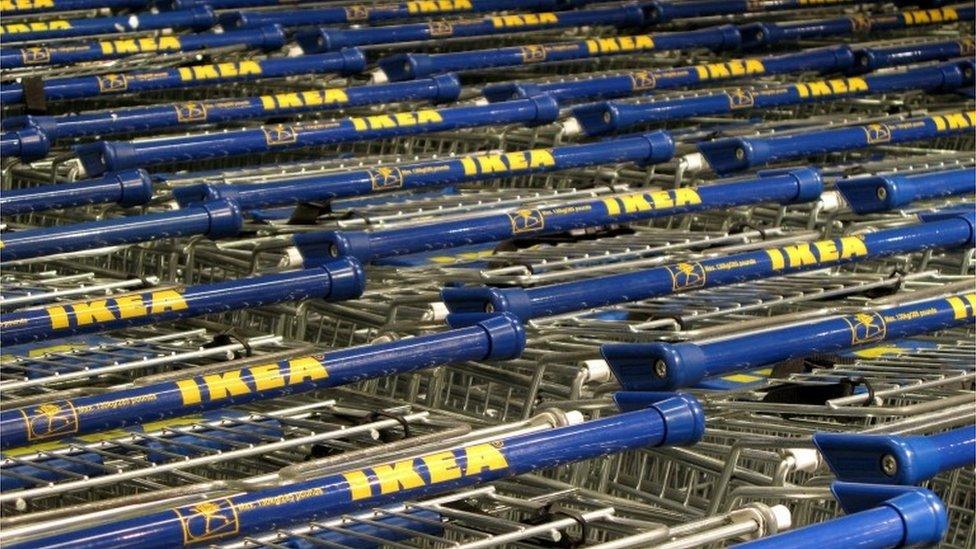
- Published24 April 2018
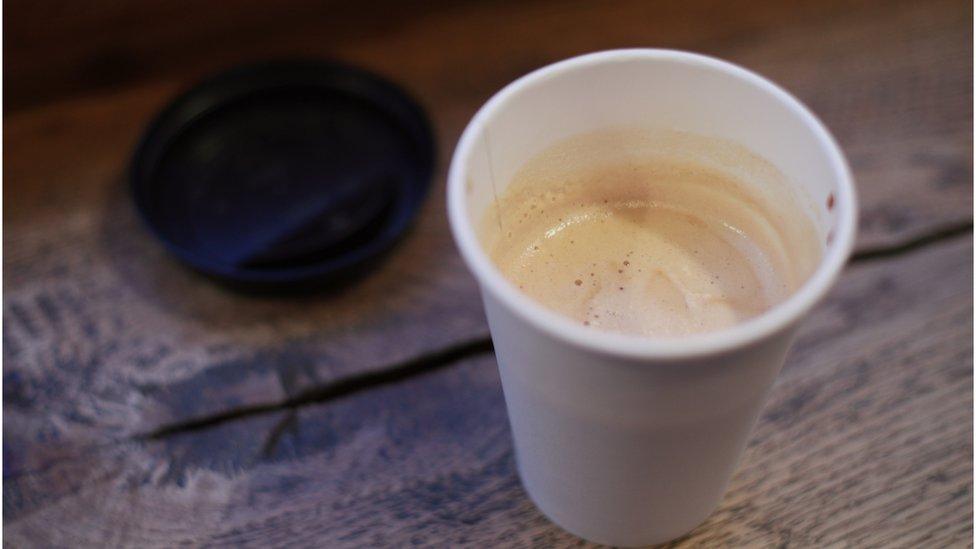
- Published17 April 2018
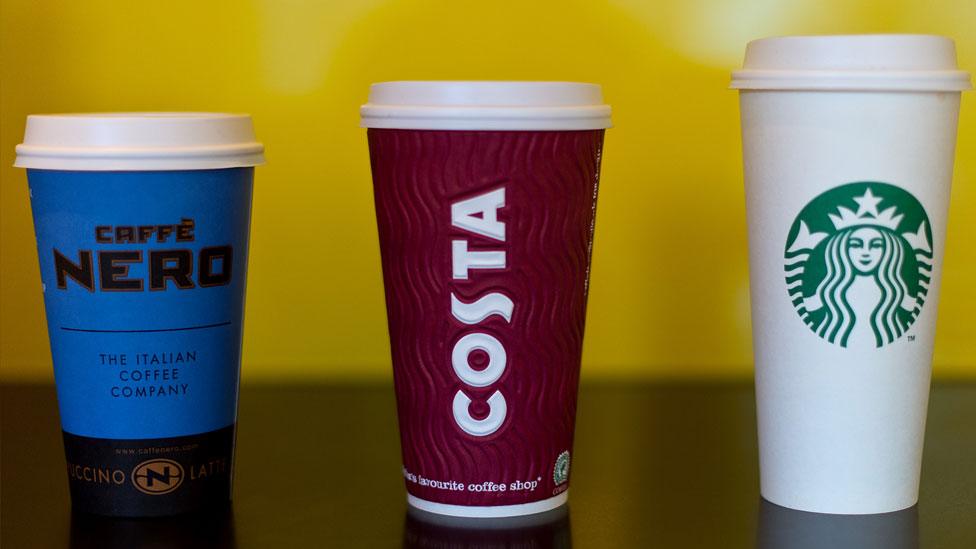
- Published13 February 2018
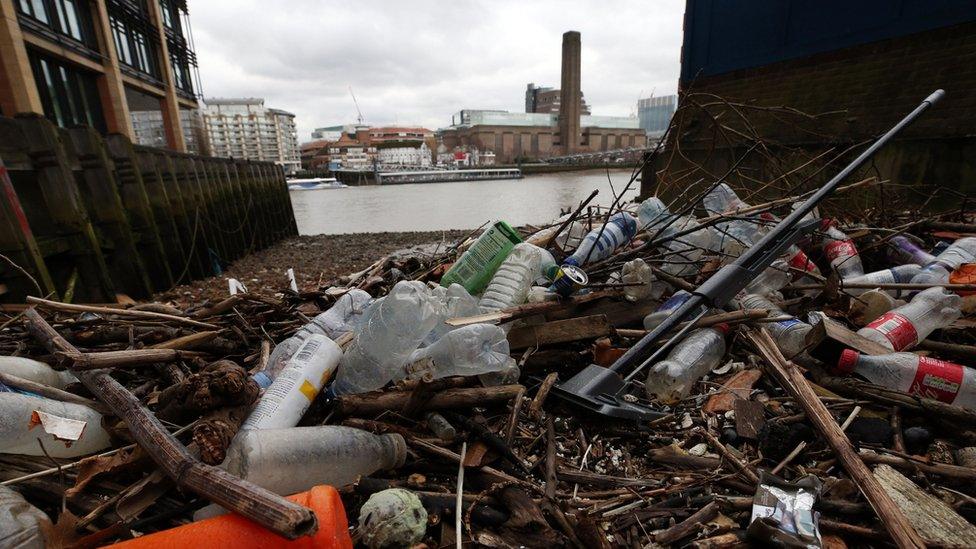
- Published18 December 2017
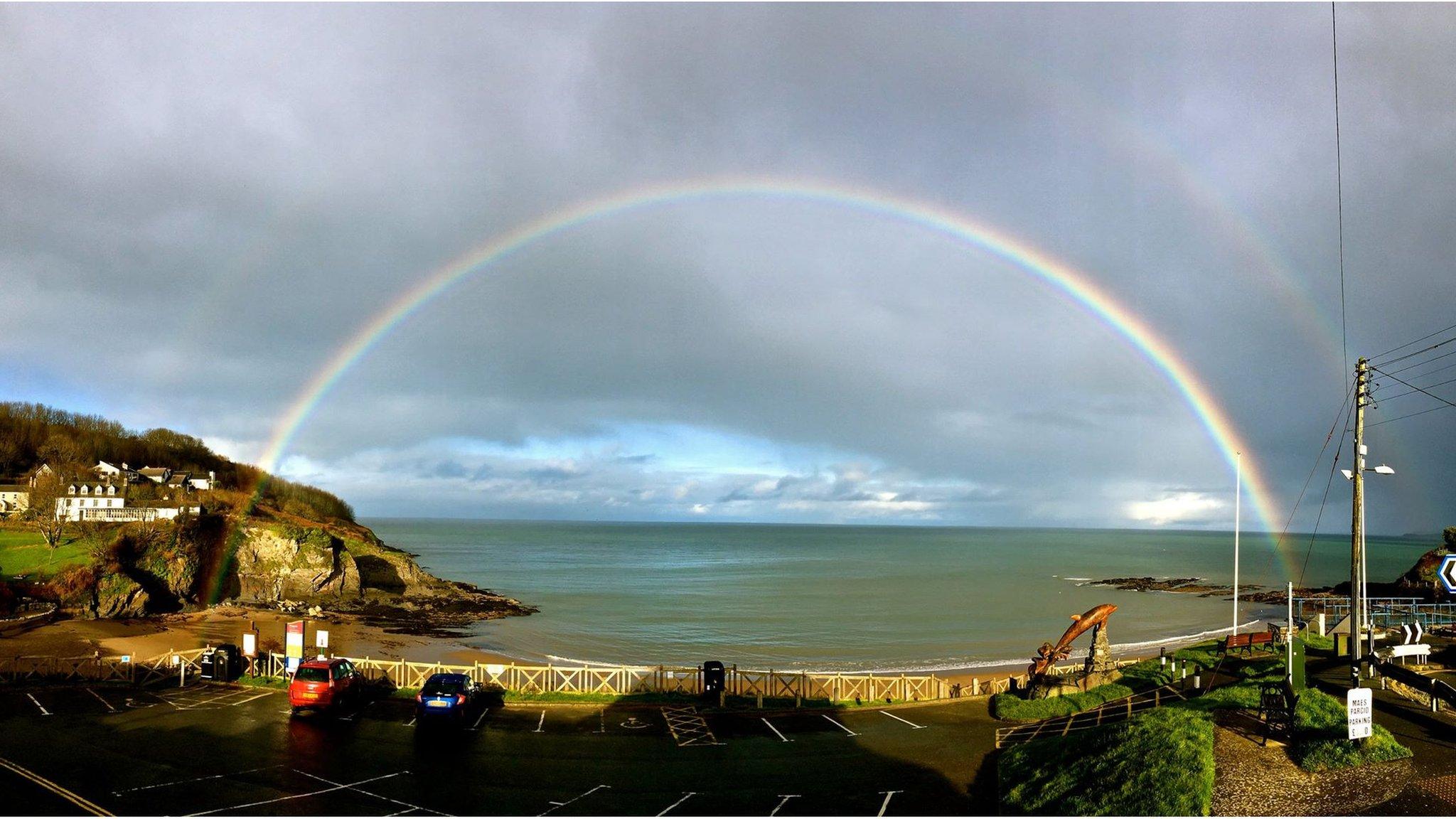
- Published3 June 2018
